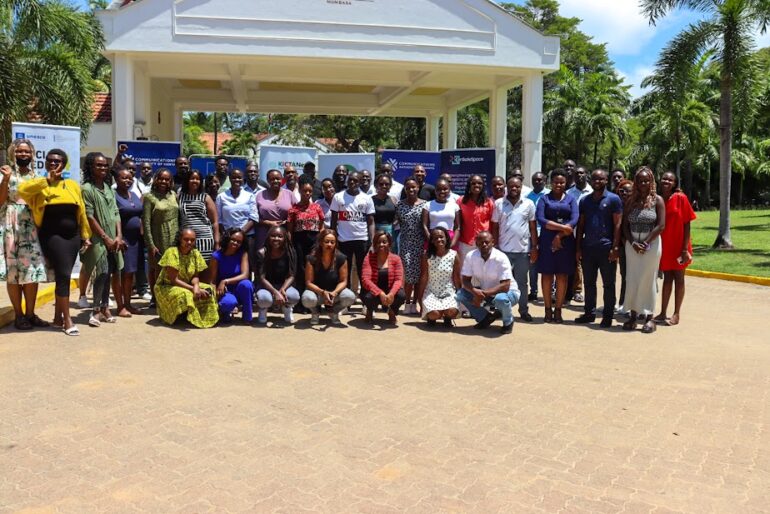In an era where Kenya’s digital sphere increasingly shapes not just how citizens engage with one another but how they engage with power, the battle for internet freedoms has never been more urgent. From surveillance tools to information blackouts, the threats to civic space online risk silencing the very voices that form the backbone of democratic life. During the the 2nd Social Media for Peace workshop held in Mombasa, a coalition of digital rights advocates, policy makers, technologists, and community organizers came together to examine what it means to protect civic space in Kenya’s evolving digital landscape . This conversation could not have been timelier. Kenya has been going through a rapid digital transformation and questions of access, privacy, and accountability take center stage.
The Digital Public Square
The internet has become Kenya’s most important public square. Platforms like X (formerly Twitter), Facebook, and TikTok have emerged as the places where political debates are shaped, social movements organized, and communities mobilized. But with this prominence comes vulnerability. The same platforms that empower citizens also expose them to new risks state surveillance, data misuse, disinformation campaigns, and arbitrary censorship. Civic spaces, once thought of in terms of physical gatherings, protests, and community forums, is now equally dependent on the openness and safety of the digital realm.
Shrinking Civic Space
Participants also highlighted a troubling reality of the Kenya’s civic space noting that it is shrinking, and digital tools are being deployed to accelerate this trend. Several cases were shared where online dissenters, bloggers, and human rights defenders have faced harassment, unlawful arrests, or coordinated online attacks simply for expressing critical views. This mirrors offline realities, where laws and administrative actions often limit freedom of assembly and association. What emerges is a dual-front struggle to protect traditional forms of activism while safeguarding the online spaces where activism increasingly takes root.
Digital Rights as Human Rights
Our strongest takeaways from the discussion was the recognition that digital rights are not “new” or “secondary” rights but human rights. The right to freedom of expression, to access information, and to privacy are enshrined in the Constitution of Kenya, and they apply as much online as they do offline. Civil society leaders stressed the need to continually remind policy makers and the public of this point, especially as new technologies such as AI-driven surveillance and biometric systems are rolled out without adequate safeguards.
Building Resilience Through Collaboration
Safeguarding civic space online requires a collective effort. At the workshop, participants emphasized that no single actor whether government, private sector, or civil society can achieve this alone. Instead, resilience comes from collaboration. This includes coalitions between rights groups to push back against restrictive laws, partnerships with technology companies to enforce transparency and accountability, and community education initiatives that equip citizens with the tools to recognize risks and defend themselves online. Collaboration also extends beyond Kenya’s borders regional and global alliances provide essential solidarity and amplify local voices.
The Role of Policy and Regulation
Policy emerged as a double-edged sword in the discussion. On one hand, regulation is necessary to ensure accountability, protect citizens from harm, and provide a legal framework for redress. On the other hand, poorly designed or deliberately restrictive laws can be used to stifle dissent and weaken civic space. The challenge, then, is to create enabling legislation that balances security, innovation, and rights. Participants called for inclusive policy-making processes, where civil society is not only consulted but actively involved in shaping laws that affect digital freedoms.
The workshop underscored that protecting civic space is not just about reacting to threats but about proactively building systems, cultures, and policies that safeguard participation, dialogue, and accountability. The fight for civic space in Kenya’s digital age is, at its core, a fight for democracy itself.
